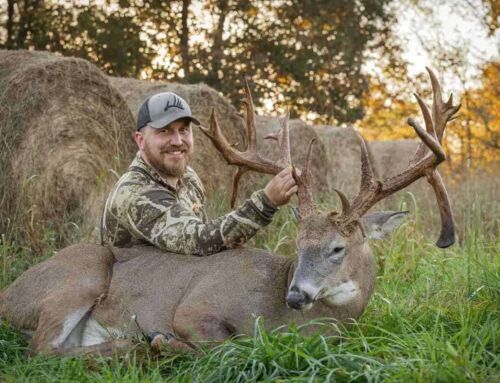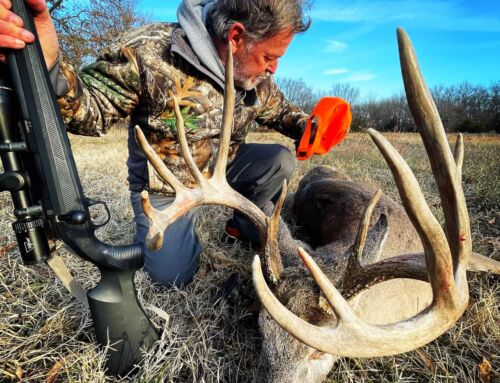U.S. Fish and Wildlife Service studies show that nationwide, participation in hunting has dropped from 14 million hunters several years ago to 11.5 million today. In 2019, only 5% of Americans hunt, about half as many as 50 years ago.
My home state of Virginia, for example, has lost one-third of its deer hunters in the last 25 years, from 300,000 in the 1990s down to 200,000 today. Experts with the Virginia Dept. Of Game and Inland Fisheries say the decline in licensed hunters is the #1 deer management issue in the Commonwealth.
There are myriad reasons for the decline–family/work obligations; more people living in urban areas; lack of access to hunting land; too many people glued to iPhones, Netflix, etc.—but the Number 1 reason is that Baby Boomers are quitting hunting at an alarming rate, and it’s only going to get worse.
As this NPR article (a must read for all hunter) states:
Sixty-five. That’s when the average hunter stops buying licenses and picking up their rifle….
For many hunters…around the U.S., that wall is rapidly approaching.
Nearly a third of all hunters in the U.S. are Baby Boomers. They hunted like no other generation since. But the oldest Boomers are already aging out of the sport and the youngest, at 54, are only about a decade away from joining them.
Some Boomers have health issues (bad back, shoulder, knee) that force them to quit, and that’s understandable.
Others are pretty healthy, but say that hunting is not as easy as it used to be. No doubt that hiking, climbing and dragging/lifting/processing a deer is good hard work.
But this is most disturbing to me: I interact with a lot of Boomers who tell me they have just lost interest in hunting and have turned to other hobbies.
Due largely to Boomers quitting, annual expenditures by hunters, which provide almost 80% of dollars spent for conservation, declined by 29% from 2011 to 2016, from $36.3 billion to $25.6 billion. That means less money for state fish and wildlife agencies, and as more Boomers hang it up over the next 10 years, significantly less revenue for conservation and hunting programs.
We’re going to reach a tipping point sooner than later, a crisis I fear.
The National Wildlife Federation says that current funding levels for wildlife conservation are “less than 5 percent of what is necessary.”
And this as more and more states are forced to spend significant portions of their revenue on Chronic Wasting Disease research, testing and control efforts.
What can be done?
There is a national movement underway called “The 3 Rs” to not only recruit new hunters, but also to retain and reactivate older hunters and Boomers.The motives are fine, but I’m skeptical. Through well-intentioned movements and programs, we can retain and re-engage some hunters, but it will be a drop in the bucket as to what’s needed for future conservation, and to keep hunting strong.
You can’t stop the aging demographic of hunters.
But please join me in hunting for long as you can.
And if and when give it up by either necessity or choice, continue to purchase a state hunting license each year to help fund conservation and to sustain our way of life.






I am a lifer. Until I can’t do it any longer I will hunt. I now have two young kids who are into it, so that’s a plus. My daughter loves to “hunt” (she goes with me and sits in the turkey blind), and fish. She loves the outdoors; has her own “minoculars” when we go glass for deer. My son is about 17 months and shows signs of loving the outdoors (he wants to go outside constantly; stares out the window into the back yard often). So, I think it’s all of our jobs to recruit kids into the fold. Also, those of us who live near larger Urban areas (Ft. Wayne for me) are losing ground at an alarming rate. Many of the spots I used to hunt are now riddled with new homes, etc. Urban sprawl is a real issue for me and those who have hunted in this part of Indiana over the years. I assume it’s that way for all folks who leave near Urban areas. That has to be one of the big issues here (as well as others). Keep after it folks!
At 64 I drive 4 hours each way to my hunting land an little doubt it is not as much fun as it once was. I still thrill to the hunt and each time I see a deer, any deer, my heart rate goes up. I pass on more deer today that years ago I would have taken at first good shot but that is more to my not “needing” to harvest today than when I just had to get my buck.
I have a son and grandson whom hunt but never had the fever for it as I do so I will keep my hunting land in the family. What will become of it once I am gone is anyone’s guess.
I have noticed that hunter numbers in Pa. took a nose dive starting in the 80’s about the time new age deer management,a.k.a. lower deer numbers per sq. mile, went into place. Call me what you like but the fact is deer camps had no problem finding and keeping hunters when deer numbers were up yet the game department heads just can not figure that out.
As you mentioned access is a huge part of why people are dropping out.
It’s a pay to play world now and a lot of folks flat out can’t afford it anymore.
Another thing is travel time. I hunt in a county that is 50 minutes each way from my house and I’m thankful for having access to it. But some people just don’t want to drive that far and it’s certainly isn’t helping to keep kids involved.